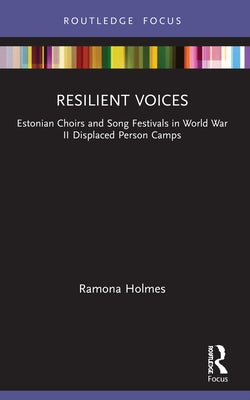Before you leave...
Take 20% off your first order
20% off
Enter the code below at checkout to get 20% off your first order
Discover summer reading lists for all ages & interests!
Find Your Next Read

The aftermath of World War II sent thousands of Estonian refugees into Europe. The years of Estonian independence (1917-1940) had given them a taste of freedom and so relocation to displaced person (DP) camps in post-war Germany was extremely painful. One way in which Estonians dealt with the chaos and trauma of WWII and its aftermath was through choral singing. Just as song festivals helped establish national identity in 1869, song festivals promoted cultural cohesiveness for Estonians in WWII displaced person camps. A key turning point in hope for the Estonian DPs was the 1947 Augsburg Song Festival, which is the center point of this book. As Estonian DPs dispersed to Australia, Canada, Europe, and the United States these choirs and song festivals gave Estonians the resilience to retain their identity and to thrive in their new homes. This history of Estonian WWII DP camp choirs and song festivals is gathered from the stories of many courageous individuals and filled with the tenacious spirit of the Estonian singing culture. This work contributes to an understanding of immigration, identity, and resilience and is particularly important within the field of music regarding music and healing, music and identity, historical musicology, ethnomusicology, and music and politics.
Ramona Holmes is Professor Emerita at Seattle Pacific University where she taught ethnomusicology and music education for twenty-five years. She plays violin, sings, and dances as part of the Seattle and Portland Estonian communities.
Thanks for subscribing!
This email has been registered!
Take 20% off your first order
Enter the code below at checkout to get 20% off your first order